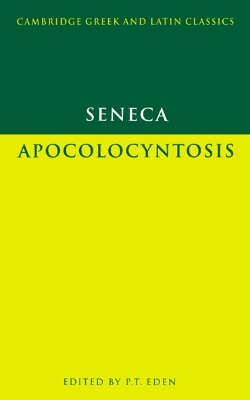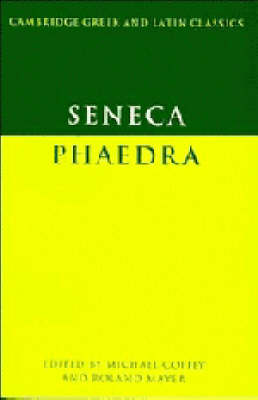Cambridge Greek and Latin Classics
2 total works
The Gourdification of Claudius the God has instant and lasting appeal. It is a uniquely surviving specimen of prose-and-verse satire from the Roman world - and satire, a Roman speciality, is one of the few types of ancient literature to survive, and thrive, in modern society. Its author, Seneca, was not only gifted with intellectual virtuosity, but, at the time of writing, was the precarious power behind the throne of the dangerously developing Nero. Claudius, the target of his malicious wit, remains the most controversial of the first twelve imperial Caesars. The English version facing the text makes the work available to the general reader who may not have any Latin. The text, which is based on a critical examination of all the manuscripts, will be indispensable to scholars. The commentary, which is the first on this scale to have been written in English, is primarily addressed to university and other students.
Seneca's Phaedra occupies an important and influential position in the tradition of European drama. This new edition concentrates on the dramatic qualities of Phaedra and examines the Greek and Roman background to the play, particularly Seneca's use of Euripides and Ovid, and its philosophical elements grounded in Seneca's Stoicism. The introduction also discusses dramatic and rhetorical presentation, aspects of style including imagery and the transmission of the text. An unusual feature is the treatment of the influence of the Phaedra story in later European literature and music. The commentary examines Seneca's language in detail and looks at his use of earlier poetic models (Virgil and Ovid) as well as plot, characterisation and his use of myth. Although principally for students of Latin literature, this new edition will also be of interest to historians of drama and comparative literature.

